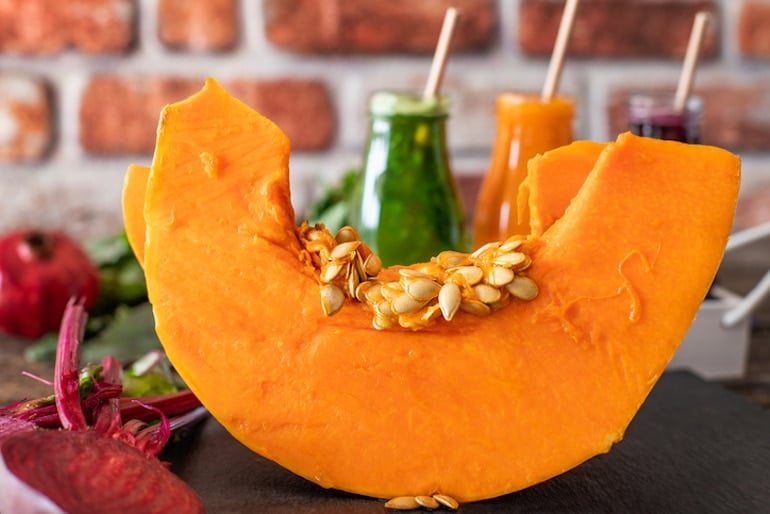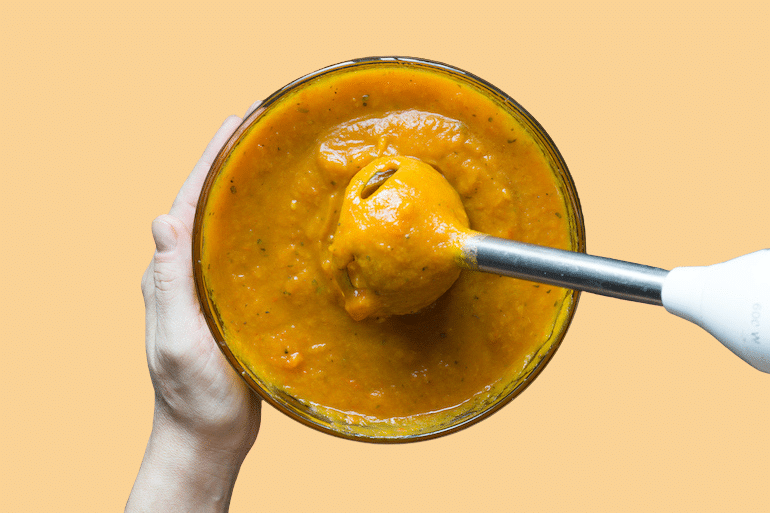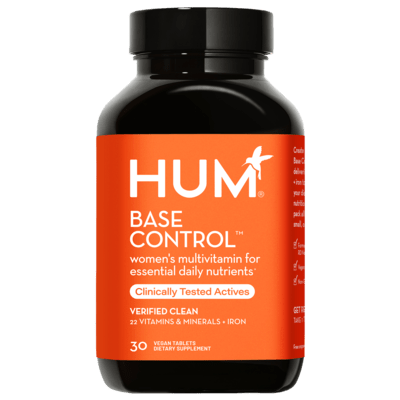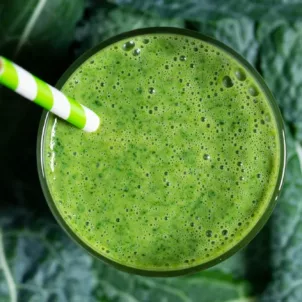THE WELLNEST • Food • Healthy Eating
4 Health Benefits of Pumpkin to Support Your Fall Fix
By Shavonne Morrison, MS, RD, LD •
October 22, 2020
Is pumpkin good for you? Absolutely! Learn about the health benefits of pumpkin so you can feel good indulging as temperatures cool down.
Pumpkins are easily one of the most popular fall foods. From pumpkin spice lattes and pumpkin pies to pumpkin-flavored everything, what’s not to love?
If you’ve been pumped about pumpkin this year, keep reading to explore a few of the nutritional benefits of this fall favorite.



4 Health Benefits of Pumpkin
As festive as they are, pumpkins are also highly nutritious. They contain powerful antioxidants such as vitamins A, C, and E. They also contain fiber, which is great for aiding digestion and promoting feelings of fullness. And although pumpkins are often prepared in sweet dishes, they’re an incredibly versatile item that can be utilized in savory dishes as well. Here are four exciting benefits of eating pumpkin.
1. Pumpkins Are High in Carotenoids
Pumpkins are one of the best sources of compounds called carotenoids. Carotenoids are found in many foods, but especially in yellow-orange fruits and vegetables. They can convert into vitamin A, a fat-soluble vitamin necessary for healthy eyes and skin. Carotenoids also protect cells and tissues in the body from free radical damage. This damage can come from byproducts of our body’s normal metabolic processes, air pollution, and UV rays from the sun. Getting ahead of the problem by consuming antioxidants helps combat the harmful effects of free radicals. Carotenoids can support the immune system as well. A 2018 article in the Journal of Clinical Medicine states that vitamin A deficiency leads to a dampened immune response in mice, which may indicate that having enough vitamin A directly impacts your body’s ability to effectively fight off illness. Finally, carotenoids are also anti-inflammatory, so consuming foods high in these compounds may help reduce inflammation in the body. While acute inflammation is a normal and beneficial part of the body’s immune response, inflammation that lasts for extended periods can lead to more serious health risks. However, regularly eating fruits and vegetables high in carotenoids may help reduce your risk of developing these health issues.2. Pumpkins Support a Healthy Immune System
One cup of pumpkin flesh contains 19 percent of the daily value for vitamin C. This means that for the average person consuming a regular diet, one cup of pumpkin counts for nearly a fifth of the amount of vitamin C you need each day! During the fall season, many of us begin to be more conscious of what we can do to fortify our immune system to combat the flu and other respiratory issues. Many people know that vitamin C is necessary for maintaining a strong immune system. Since humans aren’t able to make vitamin C on our own, we must obtain enough through diet. Pumpkins are a great source of vitamin C and can be a part of a healthy diet, thus providing the health benefit of supporting proper immune function. In addition to helping aid in immune function, vitamin C also enhances iron absorption. Iron deficiency can cause symptoms such as:- fatigue
- weakness
- brittle nails
- heart palpitations

3. Pumpkins Provide a Good Source of Fiber
One cup of mashed pumpkin flesh contains about 3 grams of fiber. The recommended amount is between 25 to 38 grams per day, but most adults only consume about half of that requirement. Fiber is essential for gut health. It feeds the beneficial bacteria that live in our gut and helps them multiply. A healthy gut is necessary for a healthy immune system, proper digestion, and ensures your gut can effectively communicate with the brain through the nervous system and hormones. Another reason fiber is so important to our diets is that it aids in feelings of fullness. If preparing a balanced meal is your goal, fiber is important to consider to help your meal keep you satisfied. A low-fiber meal that’s likely higher in refined carbohydrates will be metabolized more quickly by the body. It also won’t provide the lasting energy of a fiber-rich meal. Also, if weight loss is your goal, fiber is your friend. Creating a caloric deficit is easier by filling up on fiber-rich foods that create feelings of fullness faster. In sum, pumpkins offer a good amount of fiber that can help you reach several wellness goals.4. Pumpkins Promote Healthy Skin
Want glowing skin? Pumpkins have lots to offer since they pack vitamins A, C, and E, all of which are highly beneficial for skin health. A 2017 review states that fruit and vegetable intake is closely aligned with a sufficient vitamin C status, and that multiple studies show these factors to be beneficial to overall skin health. Vitamin C is essential to produce collagen, a component of your skin that promotes elasticity. Maintaining elasticity is what gives your skin a youthful appearance and helps prevent fine lines and wrinkles from forming. A special type of vitamin A found in pumpkins is a group of compounds known as retinoids. Retinoids support healthy-looking skin by providing anti-aging benefits similar to those of vitamin C. However, instead of helping produce collagen, retinoids:- protect against sun damage
- reduce the appearance of fine lines and wrinkles
- improve skin texture
- may potentially help reduce breakouts (although the best results stem from topical retinol)

Tips for Buying Pumpkin Products
Now that you know about the many health benefits of pumpkins, there are some things worth noting when it comes to actually preparing pumpkin dishes. If you’re purchasing canned pumpkin puree, look for pumpkin puree without added sugar. Check the ingredients label on canned pumpkin to ensure the only ingredient is pumpkin puree. This way, you know you’ll get all the health benefits pumpkin has to offer without the added sugar. Added sugars can have their place in a healthy diet. And this time of year, there’s no need to skip out on festivities because of food fears. However, eating mindfully by cutting out excess added sugars where you can will help you keep your sugar intake in check.The Bottom Line
Pumpkins are a nutritious and fun fall-favorite full of health benefits. They have vitamins A, C, and E, which are each powerful antioxidants that promote skin health, eye health, and immunity. Pumpkins are also a good source of fiber that can encourage fullness and benefit gut health. As a reminder, remember to look at labels to make sure you’ll getting all the benefits of eating pumpkin, but without the unnecessary sugars and additives. Finally, enjoy your fall festivities!More like this









